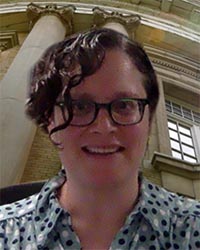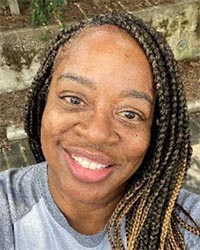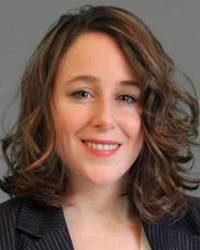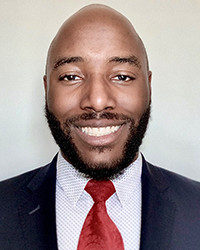Engineering Ethics and Equity Micro-Credential
Penn State College of Engineering graduate and undergraduate students are invited to participate in the Engineering Leadership Development program’s Engineering Ethics and Equity Micro-Credential. This four-part digital badge series aims to build knowledge on the importance of understanding, identifying, speaking up, and leading from an ethical and equitable perspective.
Through presentations by academic and industry engineering professionals, students will learn how to apply ethics and equitable concepts to an engineering career. The four badges will be offered throughout February and March 2022. Although a badge will be issued for each presentation attended, the culminating meta-badge will be issued for those who attend all four sessions and complete the knowledge quizzes with an 80% or higher. Upon completion of the full series, students will receive a link to add the digital badge to their LinkedIn page or online resume.

Ethics and Equity—Why is it important?
Dr. Cindy Rottmann, University of Toronto
2/16 | 3:00-4:15 p.m. ET | Via Zoom
Through this interactive learning experience, ethics and equity will be defined and explored within the context of engineering work. Earners of the badge will learn current ethics and equity challenges and have a solid foundational understanding of why developing a radar for ethical and equity issues in engineering work is important. This badge will ground earners in the importance of the connection between ethics and equity towards creating inclusive engineering work environments.
Learning objective: Define professional ethics in engineering; define equity concepts associated with engineering work.
Bio: Cindy Rottmann is the Associate Director, Research at the Troost Institute for Leadership Education in Engineering (Troost ILead), University of Toronto, where she leads an interdisciplinary team of engineers and social scientists on research projects examining engineering leadership, equity, and ethics in professional engineering contexts. Cindy is the current Program Chair for the Leadership Division of the American Society of Engineering Education (ASEE LEAD). Over the past two decades, she has published 80 articles and conference papers on engineering leadership, engineering ethics and equity, engineering career paths, and social justice teacher activism.

Recognizing Ethics and Equity Issues in the Workplace
Stef Murray, Chief Diversity & Inclusion Officer and Vice President, Human Resources, Schnizer Steel
3/2 | 3:00-4:15 p.m. ET | Via Zoom
Through this learning experience, the contribution of unconscious bias to behavior that is contrary to the principles of ethics and equity will be explored. Badge earners will recognize the existence of unconscious bias particular to race, gender, religion, disability, sexual orientation, age, and other demographic and individual characteristics. Badge earners will identify strategies to uncover and overcome the biases that are often hidden behind decisions and actions in the workplace.
Learning Objective: Identify strategies that can be used to uncover and overcome the biases that are often hidden behind decisions and actions in the workplace.
Bio: Stef Murray has over 34 years of professional experience including 28 years of people leadership, 25 years of human resources, and 10 years of operations/P&L management. Murray's blended background has served her well as it has allowed her to quickly relate to internal business clients, assess their people and organizational needs, and determine how human resources can contribute to positive bottom-line business results. Murray is a graduate of Northwestern University with a degree in Electrical Engineering and began her career as a Manufacturing Supervisor at Procter & Gamble. She quickly learned how critical excellent people leadership skills were and the impact that a leader had on individual and organizational success. She grew her human resources career at Dell and takes pride in being named “best of breed” of all HR people leaders within that organization. Murray has worked in many industries including Consumer Products, Technology, Services, Business Process Outsourcing, Automotive Dismantling, and Metals Recycling. Murray is a “natural” leader who mentors many of her former direct reports and team members. She has a very direct, pragmatic, and caring leadership style and is proud to report that many of her former direct reports have been promoted into key senior leadership positions. She attributes her affinity for leadership and mentoring to being the oldest of five siblings.
How Do You Speak Up with Ethics and Equity Issues in the Workplace?
Dr. Kristen Moore, University at Buffalo
3/16 | 3:00-4:15 p.m. ET | Zoom

Through this learning experience, learners will explore the underlying fears that make it so difficult for individuals to speak up against unethical and inequitable behaviors in the workplace. Earners will identify strategies that can be used to create inclusive environments where all engineers can thrive and contribute to innovative and creative solutions. Earners will understand why inaction to address inappropriate behavior is a precursor to creating inequitable work environments.
Learning Objective: Understand why having difficult conversations about inappropriate behavior and action is a precursor to creating an equitable work experience for everyone.
Bio: Dr. Kristen R. Moore, is an associate professor in the Departments of Engineering Education and English at the University at Buffalo. Her research explores the role of technical communication in addressing mundane and systemic injustices. Her research informs her work as the leader of the Justice, Equity, Diversity and Inclusion initiative at the University at Buffalo, where she also teaches courses on technical communication, equity, and inclusion. Her most recent co-authored book Technical Communication After the Social Justice Turn was awarded the 2021 NCTE Best Book in Scientific and Technical Communication; her research on intersectionality as a theoretical foundation for engineering education was recently awarded the 2021 ASEE Best Diversity Paper. Dr. Moore believes in participatory decision-making, honoring one another’s experiences and expertise, and the ability of each of us to make change in big and small ways.

How to Lead an Ethical and Equitable Engineering Workplace
Robert Turner, President, Trust Engineering Consulting Group
3/30 | 3:00-4:15 p.m. ET | In person
Through this interactive learning experience, learners will be exposed to inclusive leadership practices by engineers in the workplace. Earners will explore equitable and ethical decision-making in engineering work and be able to describe key aspects of inclusive leadership.
Learning objective: Describe inclusive leadership practices within engineering workgroups.
Bio:
Robert Turner serves as the Technology Transfer and Innovation Manager at Tennessee State University where he manages the university’s intellectual property, executes licensing agreements, and oversees the formation of spin-out startup companies. He is also the President of Trust Engineering Consulting Group, a sustainable building design and R&D firm based in Nashville, Tennessee.
Turner holds a patent from Apple, Inc. and is a 2019 Fellow of the University of Illinois Chicago Summer Institute of Sustainability and Energy. He received his bachelor's degree in mechanical engineering from Tennessee State University.
Media Contact: Meg Handley

